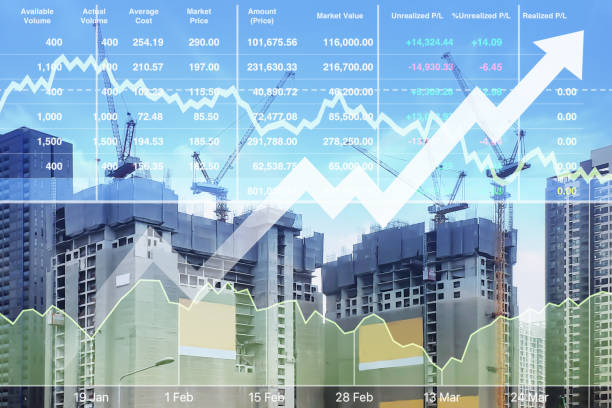In today’s complex construction landscape, success is no longer guaranteed by size or speed alone. Projects that finish on time, within budget, and at the highest quality are typically driven by one factor—clarity. Whether you're working on a residential build or a commercial development, informed decision-making is the cornerstone of smart building practices. Better data leads to better choices, and better choices result in fewer delays, lower costs, and higher satisfaction for stakeholders.
The Role of Data in Construction Success
Modern construction projects involve multiple moving parts—design, materials, timelines, legal compliance, labor, weather dependencies, and unexpected disruptions. Navigating these factors efficiently demands more than guesswork or gut feeling. It requires access to accurate, real-time, and relevant data throughout the project lifecycle.
Incorporating data-driven strategies allows project managers to predict challenges, compare alternatives, and optimize outcomes long before ground is broken. Having this clarity from the beginning reduces errors and rework, ultimately protecting both timeline and budget.
Why Quality Information Matters at Every Stage
Every stage of a construction project benefits from well-organized information. In the planning phase, reliable data helps architects and engineers fine-tune designs. During procurement, it enables smarter choices regarding materials, vendors, and pricing. On the job site, it empowers workers to stay aligned with schedules, safety standards, and quality expectations.
Crucially, decisions made without sufficient data are more prone to failure. For example, choosing materials based on outdated cost estimates can lead to significant budget overruns. Similarly, a lack of visibility into subcontractor timelines can create scheduling bottlenecks that impact the entire project.
Financial Forecasting: The Foundation of Informed Building
No project is too small for structured planning. One of the most powerful tools for gaining clarity early in the construction process is financial forecasting. By projecting expected costs and revenues, financial forecasting allows developers and contractors to make proactive adjustments to their budgets and project scope.
Accurate projections also help justify decisions to stakeholders and investors. A well-researched forecast fosters transparency and instills confidence that the project is viable and well-managed from the start. As outlined in this article on Medium, forecasting isn't just a financial exercise—it’s a strategic necessity for a smooth build.
Using Technology to Strengthen Your Planning
Technological advancement has transformed how construction teams gather and use information. Today, builders can rely on digital tools to visualize entire projects before any physical work begins. Building Information Modeling (BIM), real-time scheduling software, cloud-based collaboration platforms, and drone surveys are now part of smart construction practices.
These technologies allow all stakeholders—from architects to investors—to operate from a shared knowledge base. As a result, errors due to miscommunication are drastically reduced. An example of how modern tools are being applied effectively is described in this post on Ameblo, which highlights how early estimations and coordinated planning lead to better execution.
Avoiding Common Pitfalls Through Information Accuracy
In many cases, project delays and cost overruns aren't the result of poor labor or weak leadership—they come from misinformed assumptions made early on. One common example is underestimating material costs due to fluctuating market prices. Without real-time updates and reliable sources, project teams might order at a higher price or suffer supply delays due to unavailability.
Another issue arises when subcontractor timelines are not aligned with project schedules. A lack of coordination stemming from outdated or incomplete information can lead to costly downtime and rework. All of this underscores the importance of starting with verified, up-to-date data from day one.
Aligning Stakeholders with a Shared Vision
In large construction projects, multiple stakeholders are involved—from city planners and investors to contractors and site supervisors. Disagreements and delays often stem from misalignment or a lack of shared understanding. Information serves as a bridge here. When everyone works from the same, reliable data, expectations become aligned and accountability is distributed more effectively.
Whether it's budget breakdowns, phase timelines, or quality benchmarks, accessible and clear documentation fosters trust and collaboration among all involved parties. This shared clarity is key to minimizing friction and making faster, more unified decisions throughout the build.
The Long-Term Value of Informed Building
While focusing on short-term project completion is important, thinking long-term is what defines truly smart building. Projects built with robust data tend to last longer, require less maintenance, and meet end-user needs more effectively. Whether it’s choosing sustainable materials, ensuring energy efficiency, or planning for future expansion, every decision benefits from good information.
Using insights from post-project evaluations also enables teams to learn from their experiences. Over time, organizations that integrate learning loops and update their knowledge bases regularly become more efficient and competitive in the market.
Putting It All Together
Building smarter isn’t about spending more or doing everything faster—it’s about being intentional from the start. Strong planning based on accurate information leads to better design, smoother execution, and more predictable outcomes. Whether it’s through financial forecasting, technological integration, or data transparency, the path to successful construction lies in preparation.
The LSI phrase accurate cost estimation in construction captures this idea well. It represents the level of precision required for effective planning and risk management—something every modern builder should strive for.
Conclusion
In a world where time, cost, and quality are tightly interwoven, better information is not a luxury—it’s a requirement. From budgets to blueprints, from materials to manpower, the ability to build smarter starts with what you know before you begin. Builders who invest in reliable data, sound forecasting, and informed collaboration are not just avoiding mistakes—they're setting a higher standard for the entire industry.





Comments